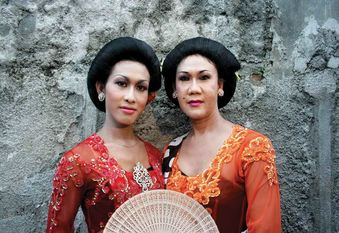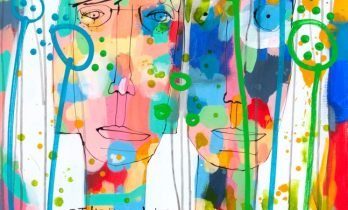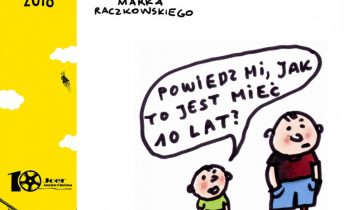Children of Srikandi

In 8 stories, Children of Srikandi provides a personal insight into trans-identity, lesbian and bisexual life in Indonesia. Blurring the boundaries between documentary, fiction and experimental film, the members of the collective tell their stories, reflecting on queer live in Indonesia, the country with the world’s largest Muslim population.
The Children of Srikandi Collective (Imelda Taurinamandala, Eggie Dian, Oji Yulia Dwi Andriyanti, Winnie Wibowo, Hera Danish, Stea Lim, Afank Mariani, featuring Ki. Suci Soleh and Ning. Anik Juwana) emerged from a workshop with the filmmakers Angelika Levi and Laura Coppens in 2010. Based on their experiences as queer women in Indonesia, the members of the collective directed, filmed and acted in the film, using the means for filmic self-representation provided by the workshop. Thus the films give voice to a group rarely heard, revealing personal tales of exclusion and struggle, but also of love and happiness. The subjects range from identity, reflection on labels, questions of belonging, families and religion.
The project started in 2010, a time of massive oppression against LGBT events. In 2010, two major LGBT events were attacked and several others had to be cancelled following intense pressure from violent religious groups, who organized themselves after the collapse of Suharto’s dictatorship in 1998.
In a time of strong and negative stereotypes about Muslims, this film offers a different perspective. The different stories deconstruct stereotypes about Muslims and LGBT people by challenging a binary view and showing that different identities are not a western import but are rooted in Indonesian culture itself. Consequently, the stories are interrelated through scenes of traditional Javanese shadow puppet theater (wayang kulit), telling the tale of Srikandi. Srikandi is a mythical figure from the Indian Mahabharata epic, who changes her gender to live and fight as an equal among men. Providing a shared reference point, the story also points out that same-sex love and gender variety were not imported from the west but form a deep and ancient part of Indonesian society.
_______
By Children of Srikandi Collective (Indonesia/Germany), 2012, documentary, 73 min.
Indonesian with English Subtitles
Lieu : Plateforme (Rotonde 1)




